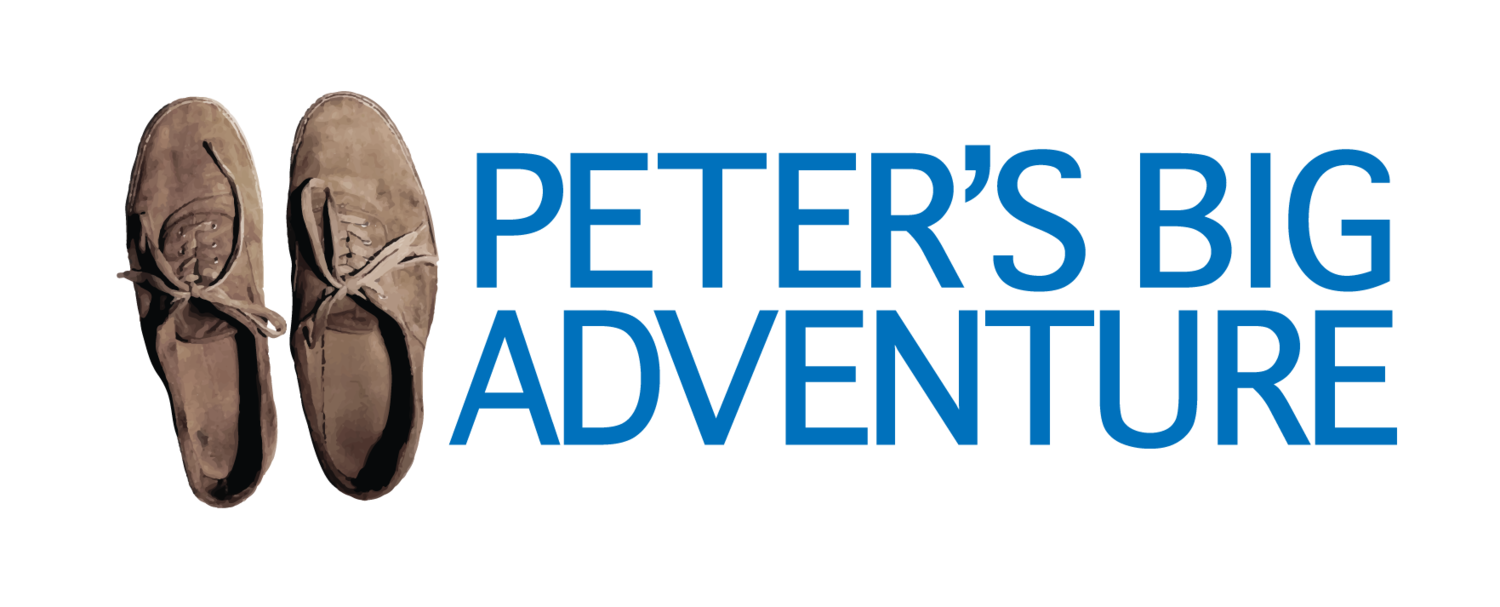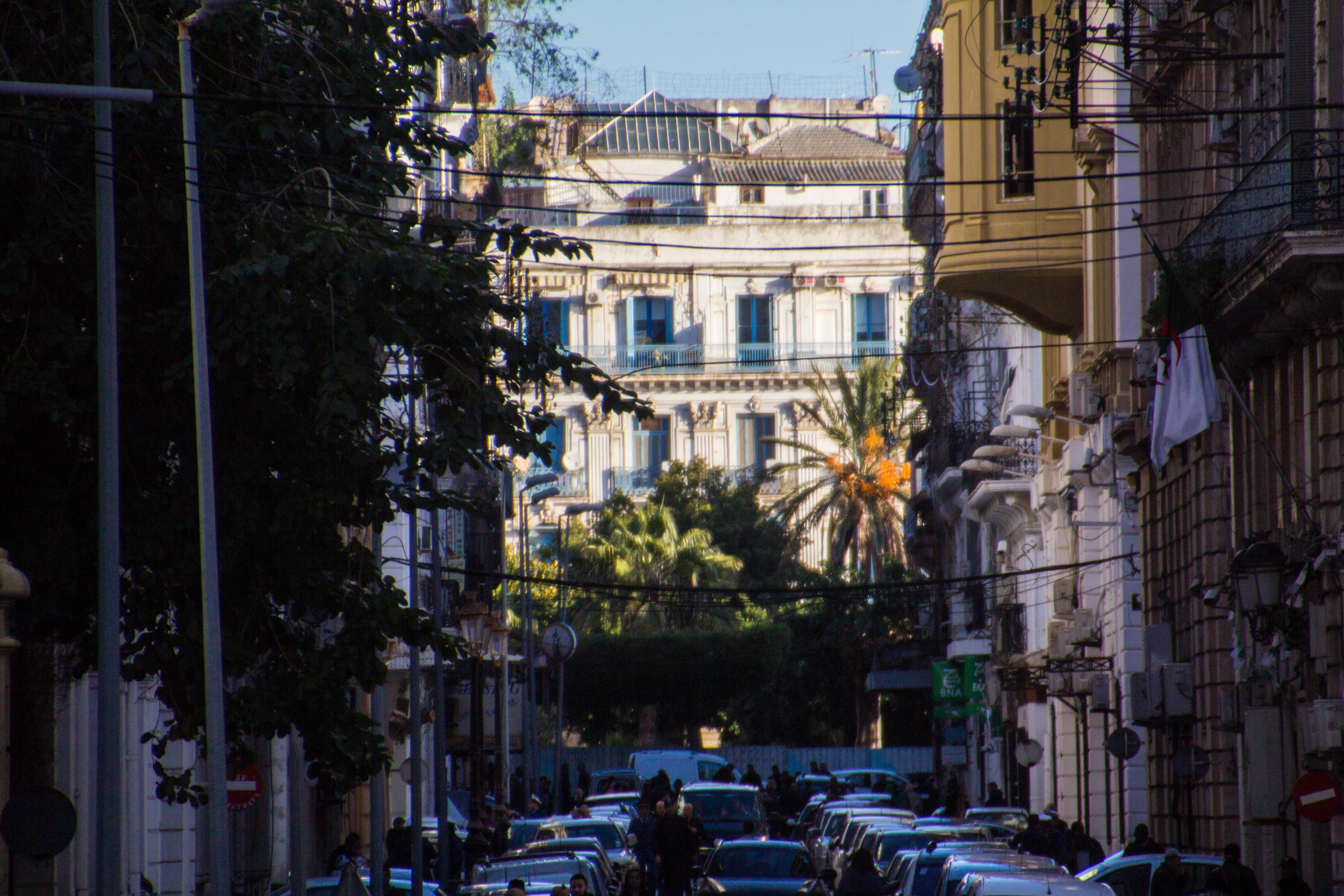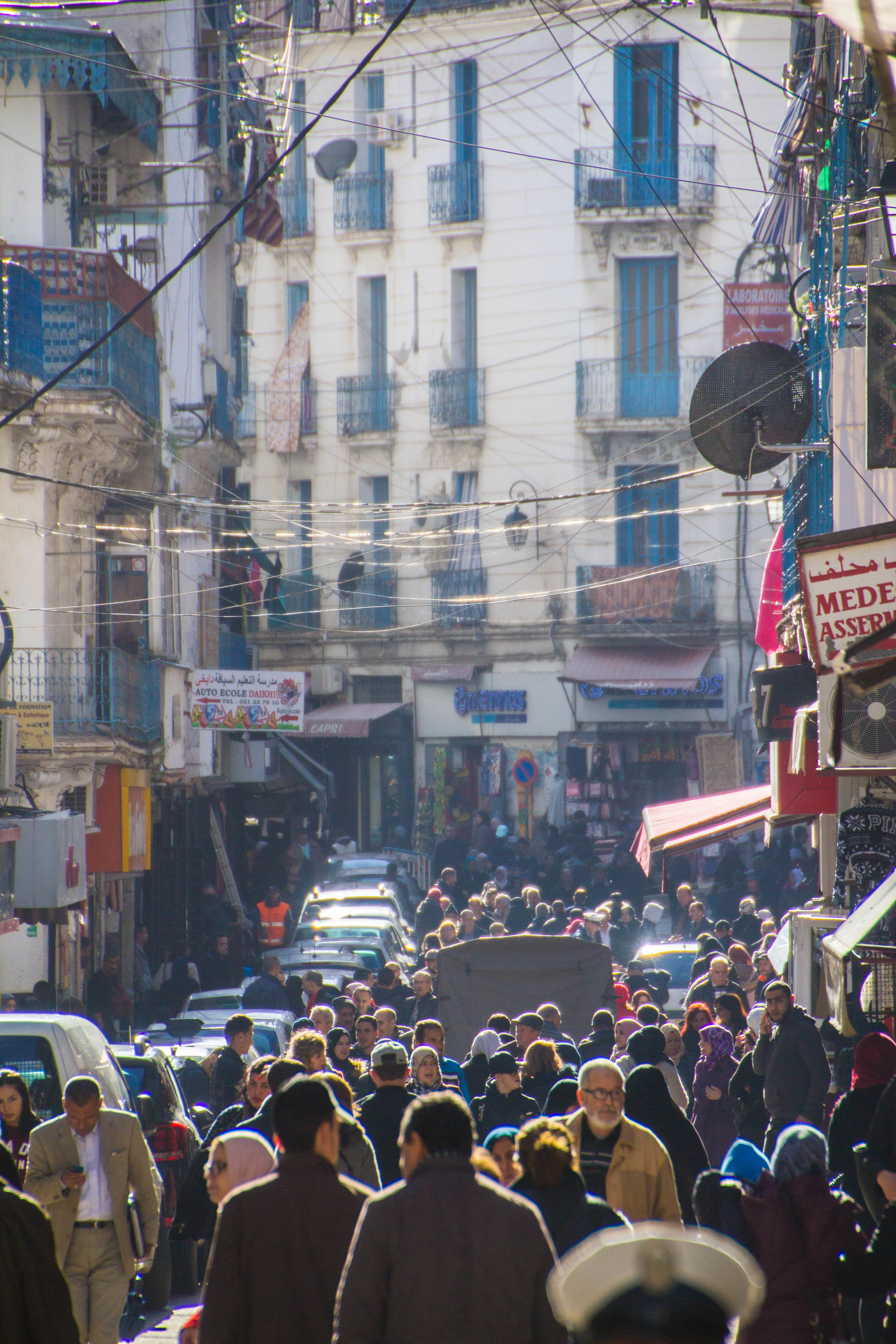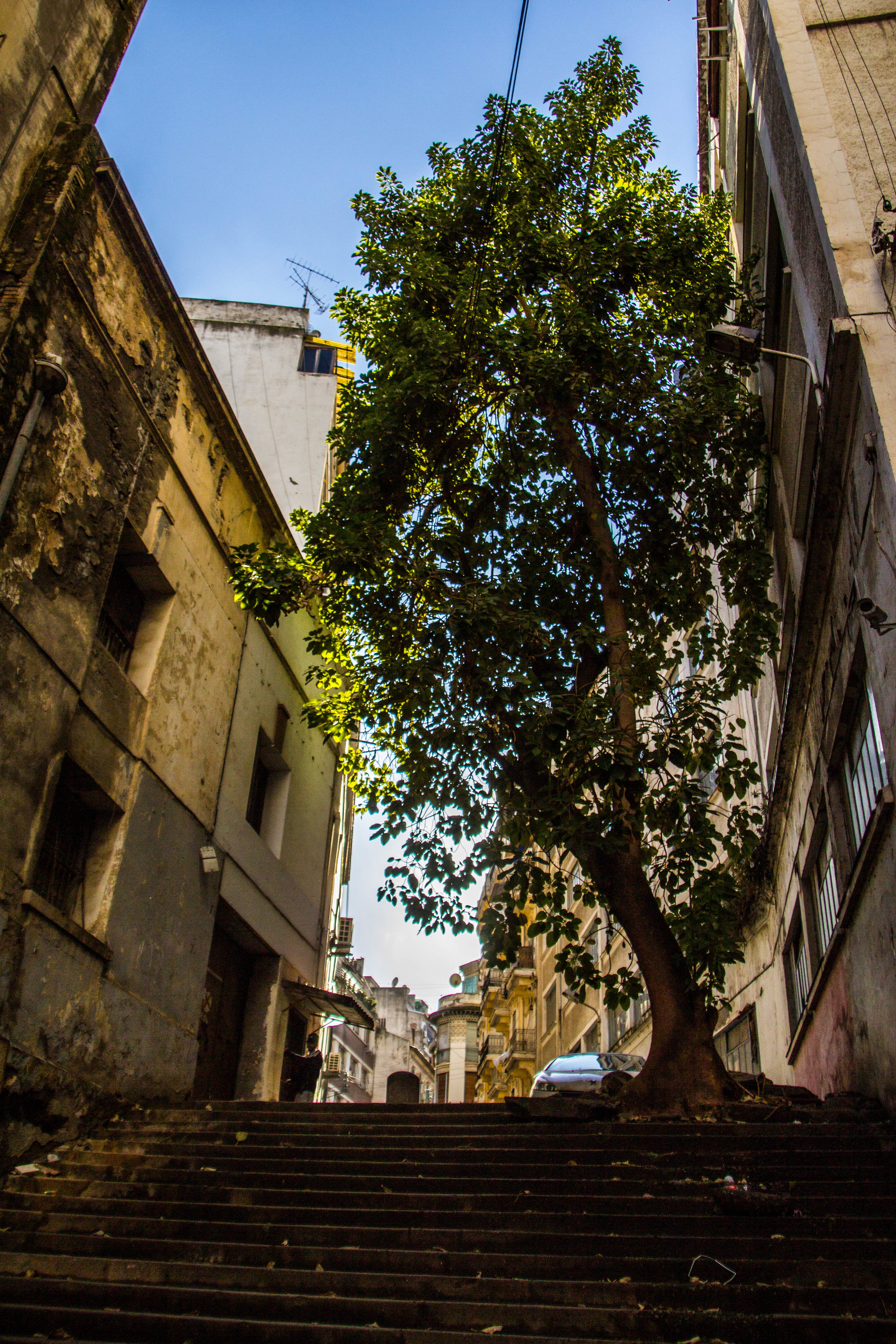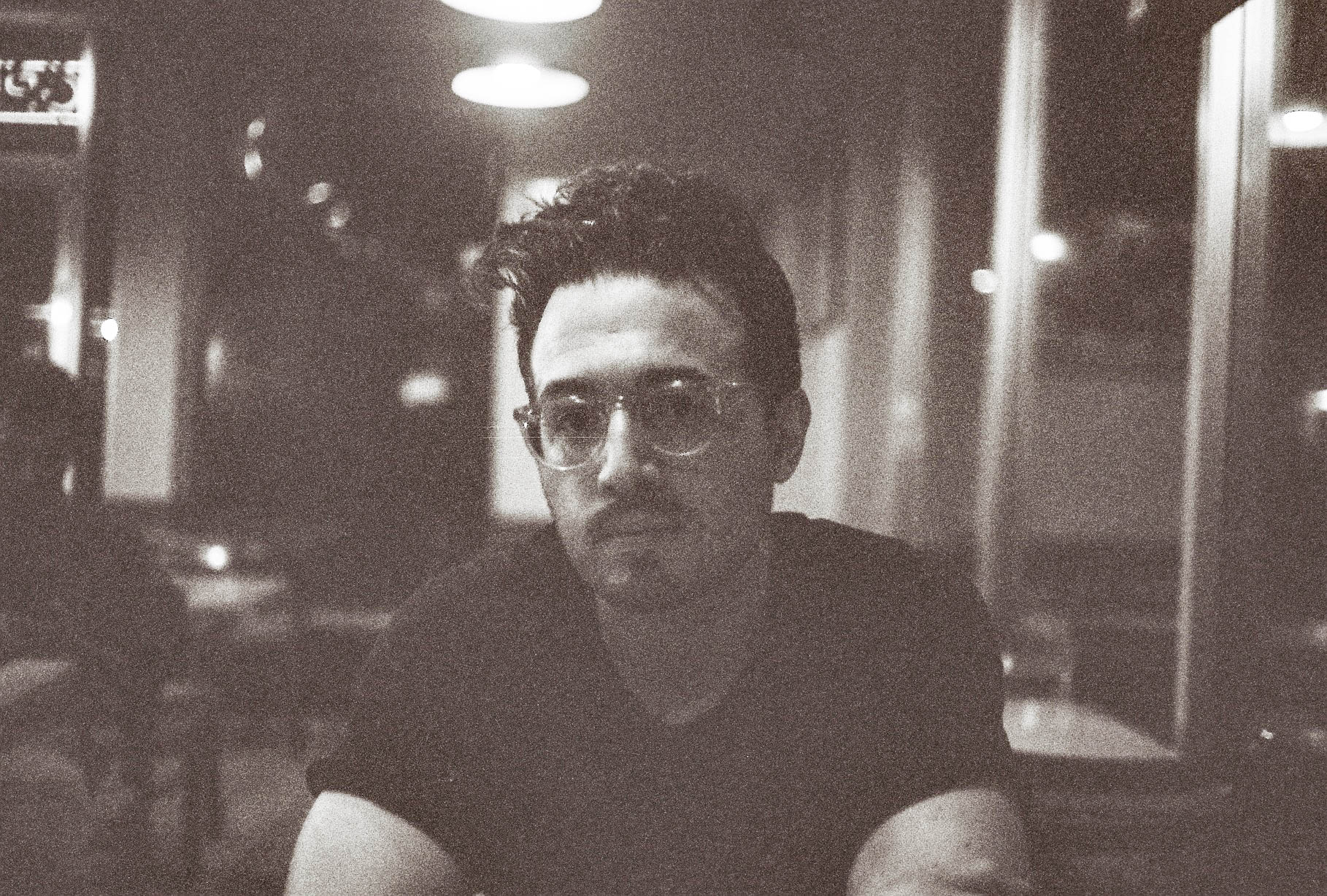I LOVE THIS CITY!!!
It's not often that I'm THIS enthusiastic about the places that I visit, but Algiers in no ordinary place. This turned out to be one of my favorite cities I've visited. Like, ever. At a glance, much of Algiers is almost a mirror image of its former colonizer, France, which sits just across the Mediterranean. Visually, it is defined by Parisian-style buildings, almost all of which are colored white. However, in spite of its surreal visual similarities with France, it only takes about 10 seconds of walking the streets of Algiers to realize that it is a world all its own.
But I'm getting ahead of myself. Most people know little to nothing about Algiers, so I'm going to kick this off by giving you some context for the articles that are to follow. Here's an index of what you're about to read. You can click on each item to zoom down through the article to wherever you'd like to start reading.
Algiers & Algeria: A Quick History
Algiers is a city that SHOULD be iconic. And you've probably heard of it before. Indeed, its name has been woven into the lore of Western history from the very beginning. What is now Algeria was once a vital part of the Phoenician, Carthaginian, Roman, Byzantine, Spanish, Ottoman, and French empires, to name a few. A lot has happened in this country, and the legacy of Algiers has been passed through generations in songs and tall tales. But then, just as we entered the modern era, Algiers sort of fell off the map. Have you ever heard anything about Algiers in a non-historical context? Probably not.
But why?
It's not Atlantis. It's been there the whole damn time, but outside of geography tests in grade school, most people have never heard anything about Algiers / Algeria at all, much less considered actually going there. This should be surprising considering that Algeria is the biggest country in Africa.
The few people who have heard about Algeria, usually have negative associations with it. And I can't say I blame them. Since Algeria won it's war for independence against France in 1962, they have had a turbulent go of things.
1992 was the start of the Algerian Civil War, locally referred to as the "10 dark years." It was a complex situation, but I'll do my best to simplify it for you. After Algeria gained independence from France, this young Islamic nation enacted a secular, relatively progressive government. However, in 1991, a theology-driven political party called the Islamic Salvation Front (ISF) was poised to win the national election and come into power. Fearing the rise of an Islamic government, the authorities stepped in and cancelled that election. Needless to say, this did not go over well.
The armed wing of the ISF began a bloody civil insurgency against the government, with the people of Algeria caught in the crossfire. As the war dragged on, it soon devolved into an international crisis, with regular instances of terrorism. Massacres of civilians were commonplace from both sides and it is estimated that upwards of 100,000 innocent Algerians in total were killed during this conflict. However, eventually ISF began to weaken, and *a version* of the democratic process was restored, with presidential elections resuming in 1999. The ISF was mostly disbanded by 2000.
The newly elected President Bouteflika's first move was to enact a program of radical national reconciliation, which provided an avenue for ISF soldiers to re-integrate into Algerian society. Today, many of the people responsible for the murder of those 100,000+ innocent civilians have rejoined the workforce, living along side the families of the people they killed. My sense is that the Algerian public remains very split on this. On the one hand, this is a powerful narrative of forgiveness and national identity. But on the other, would YOU be able to forgive these people? I don't know if I could.
It took some time, but the Algeria of today is safe and stable. President Bouteflika is more of a dictator now than a president, and a big part of what is motivating the more dysfunctional members of Algerian society to "get along" is fear, but most people who survived the 10 dark years will tell you that peace is all that matters. And today's Algeria is, above all, peaceful.
So, let me repeat this in case you need some reassurance. Algiers is 100% SAFE. And the rest of Algeria isn't much worse off. But if you've done any amount of research on this place, one could hardly blame you if you thought otherwise. The top results on Google paint a pretty bleak picture. This article from World Nomads is particularly alarmist, but it is complete bullshit. FAKE NEWS! For starters, the scary header photo showing terrorists isn't even from Algeria. People in the comments section have torn this article apart, but that hasn't stopped it from clinching the top spot on Google anyway. So, the point is, that if you're at all interested in coming here, don't let these kinds of scare tactics talk you out of it. Algiers is the dream.
However, today's Algeria does NOT make tourism simple. The Algerian government has also made an unofficial foreign policy of staying out of the news, both good and bad. So, couple that intentional inconvenience and obscurity with lingering uneasiness in the international community over the civil war in their not-so-distant past, and it's easy to see why nobody comes here.
Cue my visit. Here's a map that you can interact with to see where Algiers is located within Algeria, and in the region.
Arriving In Algeria
We flew into Algeria on the last flight into the country for the night. It was Sunday and there were European businessmen on the plane with us, probably returning to Algiers for the start of the work week. By the time we had gotten off the plane and to customs, we had confirmed that we were indeed the only tourists in the airport. And when it was our turn to see the customs agent, I handed over my passport with my tourist visa inside. The customs agent looked confused. My French is essentially non-existent, and nobody in the airport staff seemed to be able to speak English, so I was lost in translation for a moment. However, once the customs agent understood that I was a tourist, I didn't get the response I expected. I did my best to find a GIF of his face as he stamped my passport, and this is what I came up with...
I will tell you that, for the entire rest of our time in Algeria, we did not see a single other tourist. Like, zero. Our experience at customs wasn't exactly comforting when entering a country like this one, but looking back I can understand his surprise.
On the other side of customs we made a brief stop in the airport's roach-infested bathroom, and then found our way outside to catch a taxi. It cost us 2,000 DZD (17.62 USD) to get from the airport to our hotel in Downtown Algiers. In retrospect, given the time of night, I'd say that this was a pretty fair price. During the day you might be looking at 1,500 or 1,600 DZD. This actually leads me to something else that I'd like to highlight on the front end of this series of articles: we did not have to haggle a single time over the entire duration of our time in Algeria. Taxi drivers told us the correct prices, nobody hassled us to buy things in the streets—the level of financial pressure was at absolute zero. I've often found this to be the case in the less visited countries I've traveled through like Burma and Bangladesh, but Algeria was a standout. And I love that.
By the time we were actually in the taxi, headed into Algiers, it was pushing 2:00am. We had been in transit for almost 40 hours at this point, but I wasn't tired anymore. I was wired. Houari Boumediene Airport is a long hike from the city center of Algiers—it can take around 40 minutes to get there depending on the traffic, but at this late hour, the roads were empty and we made great time. It wasn't long before the classic white buildings of Algiers were flying by on either side of the car. We were staying at the Hôtel Suisse, located in the center of Algiers, so this taxi ride took us straight into the heart of the city. In the middle of the night, the streets were sleepy and vacant, but I already had a feeling that this city was going to be everything I hoped it would be and more.
The staff of the hotel was asleep with a soccer game playing on the main TV, but they woke up when we knocked on the door and checked us in. I couldn't wait to wake up the following morning.
Exploring Algiers
📸 Get ready for lots of pictures 📸
Our first morning an Algiers was a rainy one, and that was fine by me. I slept in, had a late breakfast, and by the time I was emerging from my cocoon, the rain was dissipating. I have more articles in the queue about Algiers, but before I get to any of that, I wanted to take some time to introduce this city to you as it introduced itself to me. I'll start by addressing a few key cultural points.
Islam In Algeria:
Algeria is an Islamic country, but has historically been on the most moderate end of that spectrum. Walking around Algiers on any given day, there are lots of women walking down the streets, alone, without hijabs. That is a HUGE deal in the Islamic world. Granted, most women still won't be out alone past dark, but all things considered, Algiers felt like part the Islamic world's social frontier. However, what is true for Algiers is not necessarily true for the rest of Algeria. This is a massive country, and while large cities like Algiers and Oran are pushing the social envelope, rural Algeria is often different story.
Language In Algeria:
Walking around Algiers, it doesn't take much linguistic competency to notice that people are speaking in more than one language. Often, people will begin a sentence in French, but end it in Arabic. Indeed, the people of Algeria speak a kind of French-Arabic creole. This means that, even if you are fluent in both languages, you'd probably have a hard time eavesdropping in Algeria. However, for purposes of communicating with the locals here, proficiency in either language will do the trick. People here are very friendly, so don't hesitate to put whatever language skills you do have into action.
Are you with me so far?
Good, because I've got a lot of gorgeous pictures to show you. So I emerged from my cocoon after a late breakfast on a rainy morning, just as the sun was just starting to peek through the clouds, drying and warming everything around me. The crisp, clean Mediterranean air felt good on my skin, and as I walked, my mind was blown.
This is some of what it looks like to walk around Algiers...
From the waterfront, looking off down the coast, there are big green mountains as far as the eye can see. Algiers is a pretty hard-to-classify place, but seeing these mountains across the bay, shrouded in mist, was always an exciting reminder that I was in ~Africa~... this was my first time in Africa, so it was a little surreal for me.
Looking at these pictures, it might be hard to picture a city like this surrounded by mountains, but Algiers is literally built into the side of a mountain. The incline is so steep that most major roads have to double back on themselves, winding downwards. And it's pretty normal for the cross streets to literally be staircases. I put a few pictures of these staircases towards the top of the gallery below. (Insert joke about Algiers not being wheel-chair accessible here.)
Hauling ourselves up and down these stair cases for days on end was not an easy task. Exploring this city was a workout! These people all must have some killer calf muscles.
As I walked around Algiers, I was piecing together a small collection of photographs of street art that I came across. I didn't end up having enough of them to do one of my "street art" articles, but I wanted to share some of it with you anyway. These images are a pretty good cross-section of what you'll find in Algiers. Murals composed entirely of tile are common here, but you will also see lots of variety in style, ranging from contemporary to colonial era.
In the gallery below you will see a few examples of street art in Algiers. I also love the less-elaborate picture of the soccer player. Algeria may not always be a serious contender to win the Wold Cup, but goddammit, they have a zealous national pride that is second to none. Apparently it's a "thing" that, no matter what soccer match you are watching—anywhere in the world (especially Europe)—you are likely to see somebody in the crowd randomly waving an Algerian flag. Regardless of which teams are playing. It could be British Premier League or Bundesliga; keep your eyes peeled when the camera is panning the crowd, and chances are good that you'll see the Algerian flag. Lolz.
One major challenge that we had during our time in Algiers was our inability to find an ATM that would take our cards. The one in the airport worked... but after that we were running on fumes. Luckily, Algeria is not an expensive country, so our fumes lasted us for the duration of our trip. However, in the early stages of our time in Algiers, were unsure how far this cash would take us. We walked around Algiers for quite a while bouncing around from bank to bank. Our cards didn't work anywhere, and there was not a single English speaker in any of the banks that we tried.
We eventually stopped into a travel agency, hoping that somebody would be able to speak English and help us. One of the people there did speak some English, but they were not able to help us. The conversation was a bit hectic because there were homeless migrant children from Sub-Saharan Africa that had come in with us and were pestering the other workers, asking for pens to play with. In Algiers, it was common to see homeless migrants sitting on the street. This would likely be their last stop before making the dangerous voyage to Europe. One of these migrants is pictured in the gallery below.
I want to take a moment to acknowledge the fact that, even though we were 100% playing the role of the dumb foreigners who don't speak the language (except for a few words of French), everybody we crossed paths with seemed genuinely eager to help us. To me, this is always an important litmus test for a city: how willing people are to help you if you need it. I'm not proud of my helplessness in this story, but Algiers scored very high in this category for me. The people were very kind.
Still, financially speaking, things weren't looking good for us. But then we saw a sign a for an English language school.
"Well, somebody there has got to speak English" we thought.
So we followed the signs and miraculously managed to find this English center. We went in, but the woman sitting at the desk did not speak a word of English either. We were about to turn around and leave, but at that exact moment, an Algerian man entered the room that DID speak English. And the day was saved! He walked with us a few blocks to bring us to a market where we would be able to exchange our money on the black market.
As we walked, he turned to us and asked "...so why are you guys here? We don't get many visitors."
Yeah, we were starting to pick that up.
A few blocks away, he took us into an expansive market, with walls of cloth hanging from the ceiling separating vendors from one another. A few hundred feet into the market, he stopped to talk to one of these vendors, who quickly turned around and pulled a wad of Euros and Dinar out a secret pouch. We handed over most of the remainder of our Euros and received a thick stack of Dinar in return. These sorts of black market exchanges can usually be done at more favorable rates than "official" currency exchanges.
With that, this man led us back out to the street, wished us luck, and disappeared into the crowd. Huge shout out to Yasin from the British Institute for the help! People like you make the world a better place. ❤️
Here's a last gallery of some of my favorite shots I took in the streets of Algiers...
I also need to give a big shout out to my dude Andrew, who took me in for dinner one night and told me a lot of what I now know about this incredible place. He runs a website called Ibn Ibn Battuta, which is probably the best blog on Algeria (in English) that exists on the internet. Go check it out.
This has been an introduction to Algiers, but next it's time to go out and see the sights! Algiers might not have much of a tourist economy, but that doesn't mean that there's nothing to see. Not by a long shot. This city has a long list of cool places just waiting for some major guidebook to dub them as "tourist" attractions. After that, all Algiers will need is some tourists!
Stay tuned.
